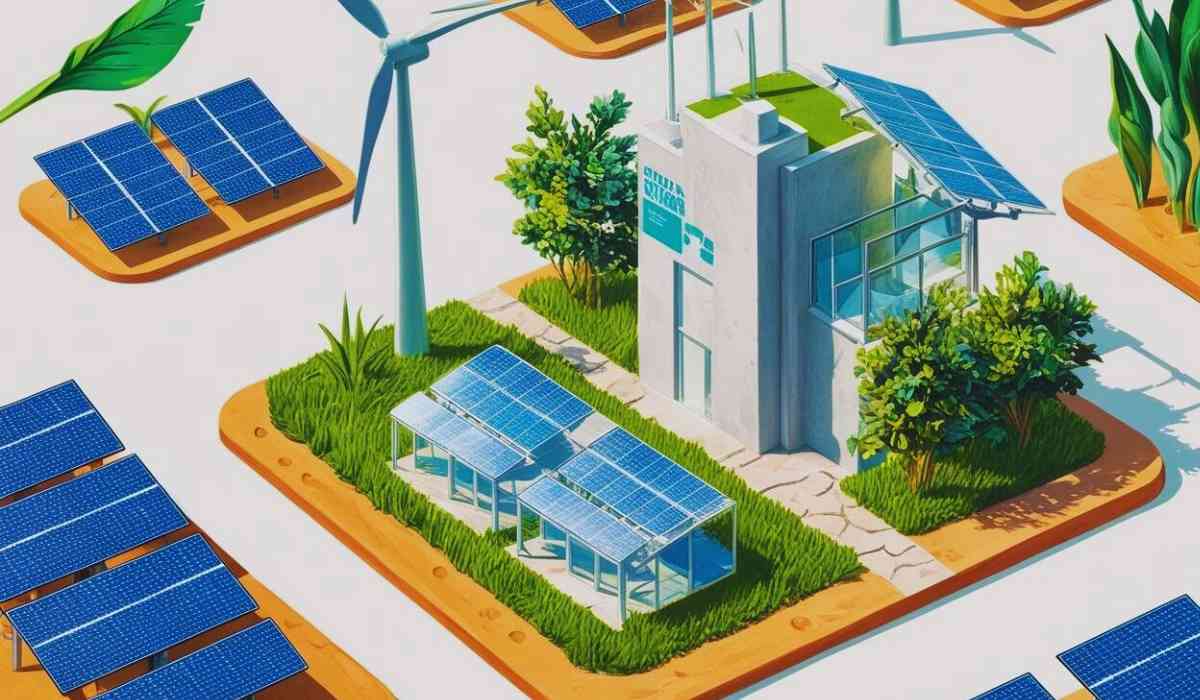As 2025 approaches, sustainability is becoming more than just a catchphrase. It is already a universally accepted practice. Eco-friendly business practices would no longer be considered a corporate responsibility. Businesses that go green not only improve their brand image. But they also will lock in long-term earnings by minimizing their carbon footprints and embracing renewable energy.
This guide looks at the best sustainable practices businesses can adopt in 2025 to gain an edge in the competitive market
What is Sustainability For Business?
Sustainability, for firms, is doing the needful without damaging or restoring resources for future generations.
Ecological, social, and governance (ESG) indices measure how sustainable a business is.
Why There is a Need for Sustainability?
Over the last few decades, industrial growth has caused very severe and irreversible changes to our earth. The impacts of such practices are too grave to be ignored.
Exceeding environmental limits is causing worries about domino effects in nature and communities around the world. It is putting businesses under pressure and creating opportunities to put sustainability targets in place (if they have not already).
Top Sustainable Business Practices of 2025
To keep your business afloat in 2025 and beyond, businesses need to focus on sustainable as well as innovative practices that are a blessing for the environment, the same as they focus on economic development.
-
Renewable energy over conventional energy source:
Move toward sustainable energy, for example, solar-based, wind, and hydroelectric power, rather than conventional energy, for example, coal, petroleum gas, and so on. This method will help slash your carbon footprint and also umbrella you from the swings in fossil fuel prices.
A great example of this is Google, that have pledged to use only carbon-free energy sources by 2030.
-
Adopt the Circular Economic Model
- A circular economic model is a way of producing and consuming that aims to reduce waste, prolong the life of products, and encourage the ongoing use of resources.
- Unlike the trivial linear model (take, make, dispose), the circular economy highlights reuse, repair, refurbishing, and recycling to build a system that keeps resources in use.
- IKEA, Adidas, and Burger King are some of the first examples that have implemented a buy-back and recycling program, promoting a closed-loop system.
-
Green Product Production
- With the consumer base becoming eco-conscious, green product demand is taking over every aspect of the market. Businesses that are prioritizing producing green products (eco-friendly) are likely to outshine in the market in 2025.
- Making green products means using eco-friendly materials, following fair production methods, and creating items that save energy.
- Companies such as Tesla, with its solution of electric cars and energy storage solutions, and Dell and HP, which recycle old computers, printers, and cartridges, are setting amazing green examples.
-
Diversity, Equity, and Inclusion
- Sustainability is more than just being environmentally friendly. A lay of concern extending toward social equity also includes.
- Today, companies are interested in announcing the progress in DEI (Diversity, Equity, and Inclusion) policies within their organizations.
- It is therefore impossible to think about a fully unselfish commitment to sustainability beyond the range of outreach, engagement, and advocacy.
- CSL is a large international company implementing its services in 35 countries, where diversity and equality are respected.
-
Adopting Zero Waste Policies
- Waste management is the second face of sustainability. Businesses at the leading edge of sustainability in 2025 will be far more picky about their waste management.
- Zero waste-to-landfill practices, including recycling, composting, and upcycling materials, are becoming normal courses of action within the industry.
- They not only reduce operating costs but also approach what consumers are now asking from an eco-friendly brand.
All of Toyota’s 27 North American facilities are certified by the U.S. Zero Waste Building Council as zero waste sites.
Major Regulations and Standards Shaping Sustainable Practices in 2025 and Beyond
|
Regulation/Standard |
Description |
Affected Industries |
Implementation Timeline |
|
EU Corporate Sustainability Reporting Directive (CSRD) |
Expands reporting requirements on sustainability impacts and risks. |
Giant companies and listed SMEs in the EU |
2025 |
|
ISO 14001:2025 (Environmental Management Systems) |
Updated framework for environmental management and compliance. |
Manufacturing, energy, construction, logistics |
2025 |
|
UN Global Compact 2025 Guidelines |
Enhances guidelines on sustainable development goals (SDGs) |
Global corporations and supply chains |
2025 |
|
India’s Green Hydrogen Policy 2025 |
Incentivizes the adoption of green hydrogen technologies. |
Energy, transportation, and heavy industries |
2025 and beyond |
Conclusion
Making sustainability a business priority not only helps heal the planet, but also opens up new channels for growth and customer loyalty for businesses. By 2025, businesses should start implementing such technologies as AI and blockchain along with circular economic approaches to boost efficiency and sustainability in operations. Investing in ESG and following regulations will be crucial for lasting success.
With inputs from agencies
Image Source: Multiple agencies
The views expressed are personal to the author and do not reflect the platform's opinion of the same.
© Copyright 2024. All Rights Reserved Powered by Vygr Media.
Author's Profile
Ayushi is passionate about creating content that not only interests the reader but actually helps them add to their knowledge. Holding a degree in science, Ayushi is exploring her creative writing as she transforms ideas into compelling narratives that resonate with readers.























